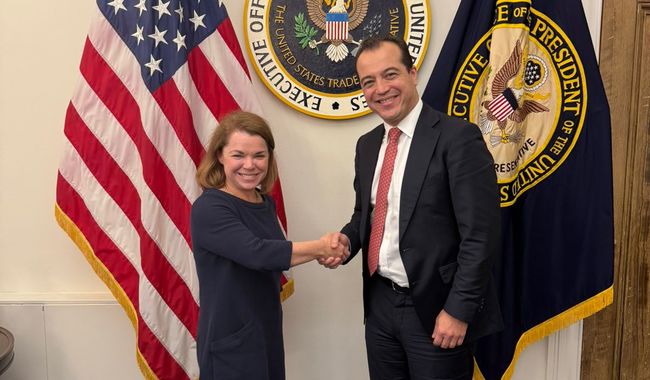The United States gave a message to Mexico on the role and regulation of Chinese state-owned enterprises.
This issue has already been included in the Treaty between Mexico, the United States and Canada (USMCA), but could be discussed again in the context of the review of this trade agreement scheduled for 2026, a process that will begin in 2025.
In this regard, Katherine Tai, head of the United States Trade Representative (USTR), made a comment in Brazil last October 23. And last week, the Undersecretary of Foreign Trade, Luis Rosendo Gutierrez, addressed the same issue in a meeting with USTR Senior Advisor Cara Morrow in Washington.
In his dialogue with Gutierrez, Morrow urged Mexico to work with the United States and Canada to address a “broad and evolving range of non-market-based policies and practices.”
Chinese state-owned enterprises
The USMCA includes specific measures to counter subsidies and non-trade practices that can affect workers and businesses in North America. The agreement also contains a chapter focused on unfair trade practices. In addition, it establishes rules to control trade distortions caused by state-owned enterprises and obliges each party to the USMCA to be transparent in future trade negotiations with non-trading economies.
Morrow, in particular, expressed his concerns about Chinese state-owned enterprises and the automotive sector to Gutierrez.
México, Estados Unidos y Canadá realizarán la primera revisión del T-MEC en 2026. Esto ocurrirá en un momento clave de transición hacia vehículos eléctricos y autónomos. Durante esta fase, tanto empresas como gobiernos buscan fortalecer sus cadenas de valor. Al hacerlo, intentan evitar interrupciones logísticas y asegurar la provisión de recursos esenciales. Todo esto ocurre en medio de una creciente competencia regional.
Business and government
The Ministry of Economy announced that the dialogue to review the USMCA began with the meeting between Gutiérrez and Morrow.
Mientras tanto, en Brasil, Tai señaló que Estados Unidos está preocupado por la inversión de empresas estatales chinas en el sector automotriz de México. Tai enfatizó: “Si un fabricante de autos chino produce en México, a Estados Unidos le importa quién trabaja en esas fábricas. También le importa qué estándares laborales se aplican, cuál es el impacto ambiental y, principalmente, si existe una conexión clara entre la empresa y el Estado”.

